#hhw day 5
Explore tagged Tumblr posts
Text
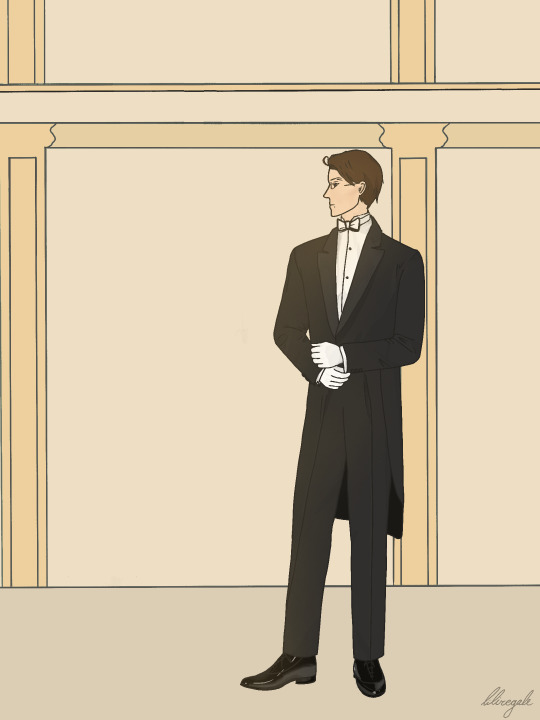
Founding of the Vienna Philharmonic, 1842
For @historical-hetalia-week's prompt 1800-1945
#hetalia#historical hetalia#hhw day 5#1800-1945#hws austria#ok this was an excuse to draw roderich in formalwear#my posts#reference used
47 notes
·
View notes
Text
Historical Hetalia Day Five: 1800 - 1945
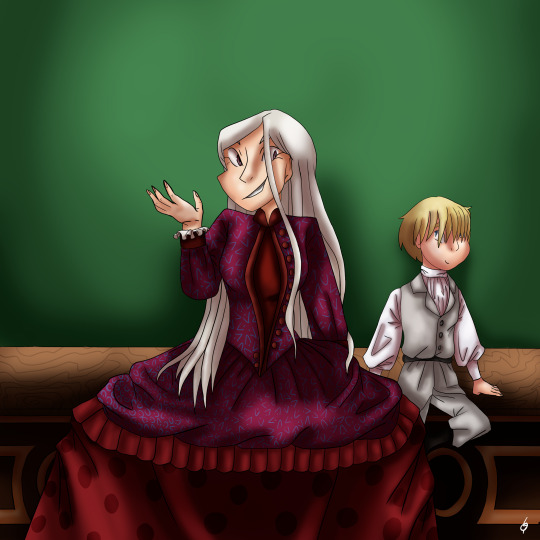
Day 5: 1800 - 1945 // Shadows @historical-hetalia-week
When making this piece, I'd been having Thoughts about the potential relationship dynamics between Nyo!Prussia and Germany. Then I happened to stumble upon a glorious mess of a German dress, and this happened. My only regret is making Germany so damn young when (judging by canon, vaguely) he's prooooobably an adult at this point.
More of an explanation is under the cut!
Let's start with Prussia, since the idea for this piece only began to be truly conceptualised upon finding that goddamn dress. Here it is, by the way:
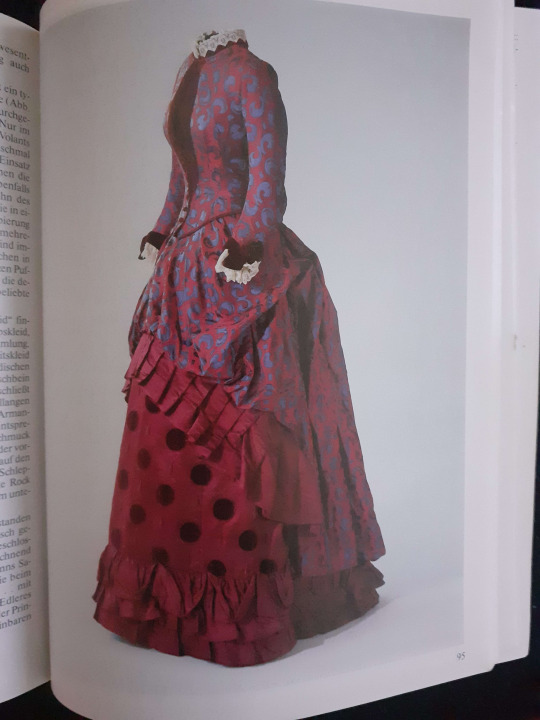
It's from the book "Ein Hauch von Eleganz: 200 Jahre Mode in Bremen" (A Breath of Elegance: 200 Years of Fashion in Bremen)- which appears to have been created on behalf of the Bremen Museum of Art and Cultural History (you'll have to forgive me if that's incorrect- my German is still a work in progress!)
The moment I laid eyes on this, I knew for a fact Prussia would wear this. The dress is tacky, bewildering, and absolutely delightful.
It's dated to 1885, so take that as a loose setting (beyond just '1800s') for this piece. However, the dress is likely the only sure piece of proof you'll find of this. For one, Prussia's hair (nevermind that it hasn't been styled) does not fit the fashionable cut of the time. Women tended to cut their hair short at the front, and then curl those bangs. However, I have a headcanon relating to N!Prussia's hair/general sense of identity (a very long story, that I'd rather save for its own post... maybe... someday... than shove in here!) that makes me think she'd not be so inclined as to cut it. While here, in the privacy of her residence, she doesn't bother to even style here hair- though this is likely a different case in public.
As for what she's doing? Probably preaching about her awesomeness!
At the time of making this, I'd just recently discovered a 3 part series focusing on Prussia's life (uploaded to Youtube by rano) originally from Bilibili (here's part one). I'd adored a fair few of the outfits throughout the series, but two of little Germany's stood out to me:
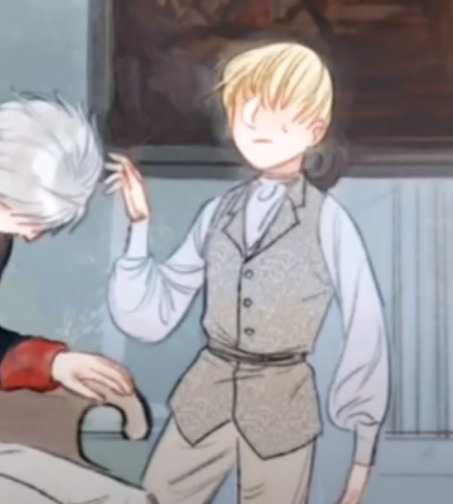

I'd asked my parents to vote on which one they liked better, and they picked the one you now see! Fun fact: in the video's rendition of the outfit, all those little specks on the vest are tiny patterns. Prussia's dress was enough for me y'all, no way was I gonna be able to draw those on too (`Д´)
The background is inspired by this image of a room in Sanssouci Palace, built by Frederick the Great of Prussia:

I didn't want to overload the piece with red, so I changed up that colour- but the patterns below the bench Prussia and Germany are sat on are based on the patterns bordering the bottom of the walls.
And yeah! From here I'm pretty sure the explanations are going to be shorter than the first few days :) But thanks for reading, if you've made it this far! That's pretty cool of you
#hhw day 5#1800 - 1945#hws prussia#nyotalia prussia#hws germany#historical hetalia#hetalia fanart#long ass rambles
14 notes
·
View notes
Text
True Mechanicals - A Historical Hetalia FF
https://www.fanfiction.net/s/14202879/1/True-Mechanicals
Guess who’s back for the 2023 @historical-hetalia-week ! (It’s me...I’m back...I’ve never left really...someone should probably send help or something).
Please enjoy two beat up old nations verbally sniping at each other over lunch. Also featuring America who is sir-not-appearing-in-this-fic. AKA: England and France get a break from the Front to have a discussion about America, his fondness of flying, and his impact on the War to End All Wars. A WWI Historical Hetalia fic.
https://www.fanfiction.net/s/14202879/1/True-Mechanicals
Warnings: War (offscreen, impacts of, etc), bad headspaces, discussion of violence, swearing. (There is no way to jazz up a conversation between two exhausted men even as they discuss a fascinating topic.) No beta, we die charge of the light brigade style.
5 notes
·
View notes
Text
Alt-talia: Student of China
Hello! This is for @hwsasiaweek ! Also for @historical-hetalia-week .
I guess this could be tangentially related to Day 6 “The sun shines for us all”, but I guess it applies more to Day 5: OCs, because the central character here is an OC. Though this fic focuses on the relationship between this OC and China, so maybe one could file this under Day 3: China, Vietnam too. But it covers too many prompts so I ultimately decided to submit under Day 10: Free day! For HHW, this is also Day 7: Free Day.
First of all, I’d like to introduce my OC; Father Korea, as I like to call him. He basically represents Korea before the split, specifically from Goryeo to the Korean Empire. I thought he’d represent Silla too, but after doing a bit more research I thought it would be best if Father Korea started as Goryeo. His human name is still being debated though, because it’s an artifact from when he was still Silla. My idea is that basically, North and South Korea, Hyun and Yong-Soo respectively, were raised by him as Egg Realms, realms in waiting.
Also, Alt-talia is still nationverse, but a bit AU. Characterizations are very different. This particularly stands out with China here.
CW: Drugs, mention of death at the end
#hwsasiaweek#hws korea#hws China#tw drugs#historical hetalia#alt talia#alttalia#historicalhetaliaweek#drugs cw
19 notes
·
View notes
Text


Tokyo Revengers
Mikey, Banji, Chifuyu, Draken, Takemichi acting like collab counterparts
Rizz Lord reader x Mikey, Kazutora, Baji
Genshin Impact
You think i'm possessed- Scaramouche
Halloween Event 2023-Lyney,Venti,Hu tao
5wirl x Reader
Tamaki s/o x Wanderer, Xiao, Wriothesley
Flirting with lyney
Making chocolate for Lyney!
Honkai Star Rail
Relationship headcannons- Himeko, Juan Yuan, Seelie, Yang Jing
Unexpected Affection- Kafka, Blade, Stelle
Unexpected Affection evil twin-Aventurine,Acheron,Boothill
Soulmates can hear you from across the universe-Jing Yuan
Yandere Acheron
Bandori/BanG Dream
When RAS acts like the TR cast
You think im possessed?-LAYER
HHW Relationship Headcanons
Wakana Rei oneshot-Birthday
Hagumi and Hina-Cute things!
Clingy Reader x Hina and Kaoru
Wakana Rei Birthday 2024
Yu-Gi-Oh
Skye/Blue Angel x GN!Reader-meeting up for valintines day
Bracelet Girls with a Reader that dosent duel seriously
Aigami Gen headcannons
Guilty Gear Strive
So your not gonna give me any?-HC, Bridget, Gio, and Sin
Elphelt x GN! Reader
Bedman, Baiken, Asuka x injured gn! Reader
Twisted Wonderland
You think I'm possessed?-Azul
Identity V
Rock vocalist Reader x Alva, Frederick, Edgar, Demi
Persona 3/5
When you're on your period- Akira/Joker and Ryuji x Fem! Reader
Phantom Theif girls x Reader
Male Phantom Theives x Reader
Ann and Haru x Reader whos not as well known
Makoto Yuki x GN! Reader
Yukari giving chocolates to GN! Reader
Doll of ur soul!!-Joker,Akechi,Haru,Futaba
Dont usually write for/ only select few
Grusha and Rika x Vocalist! Reader
Male Reader x Ranpo, Atsushi, and Chuuya
Birthday hcs Sasuke x reader
You think im possessed- Teru
Tamaki like reader x Yuta, Maki and Inumaki

39 notes
·
View notes
Photo

music - 明月千里寄相思 moody tunes to drink whiskey to
day 5 for @historical-hetalia-week - 1940? A.D.
#can't believe i was looking for a song after i already made the piece and stumbled across this one#桌上寒灯光不明 伴我独坐苦孤零#not sure if yao would be dressed quite so comfortably and have the time to sip a drink during this period but taking artistic liberties#was aiming for the early half of the century but the song came out in the forties apparently#historicalhetaliaweek#hhw day 5#prompt: music#wang yao#yao wang#hws china#historical hetalia#art#fanart#digital art#artists on tumblr#edit: this is why you dont post stuff at ass in the morning and forget to upload the fixed version thrice#hetalia
253 notes
·
View notes
Text
FrUK 1920′s
Another submission for @historical-hetalia-week The prompt for this time period was “Music”.
Warnings: Post-WWI thoughts

Grey Havens
Bordeaux region, France; 16 June 1920
A morning chorus of shrills, beeps, and long, lonely coos filters through the seam of unconsciousness. Dreams melt like heated wax, grim images of war bubbling and spilling away to nothing. The melody of birdsong signals a new dawn, another step by Saturn, putting evermore distance from the terrible past.
Sleepily, France blinks and peers at the curtained windows, dim sunlight stubbornly peeking around the fabric edges, broken by the small, darting shadows of wings. Truthfully, it is his own fault for feeding the feathered animals every morning; now, they have grown accustomed to the luxury of farm seed for breakfast.
He should slip out from under the shelter of his sheets and feed them, but his bed is so perfectly warm, and England’s arm, a soothing weight over his hips.
Rolling over, the bedroom’s alabaster ceiling blurring into pillows, he looks at England, whose face is half sunk into the duvet. His breath comes softly.
France drags a finger across his forehead, brushing aside his messy, haybale bangs. “Are you awake?” he whispers. After a moment, England sighs and mutters something unintelligible, his words muffled by cotton. “Would you mind doing me a small favour?”
England cracks open a drowsy eye. “...You want me to attend to your adoring public?”
“Mm-hm.” France curls an arm around his bare waist, knuckles tracing circles along his spine, glancing over the odd scar or two. “It is important for me to get my beauty rest.”
“They’re your birds,” England murmurs.
“I can make it worth your while.”
Leaning in, France kisses his neck, and the alluring smell of sex swirls through the air. It would be very nice to stay like this for a long time, floating gracefully in oblivion, right on the shores of sleep and lust. His lids flutter shut, tasting the skin of England’s throat, but just as he is ready to forget the birds entirely, a thumb and forefinger find his nose and pinch it. France blinks.
“You’re daft,” England says with a smirk, “if you think that will work on me.”
Scoffing, France bats the offending hand away. “Can’t you pretend to have a romantic side?”
As an answer, England snorts, muttering something about differing opinions on romance and France yawns.
He throws off the blankets and sits up, rubbing his nose and pushing cobwebs from his mind. Once he gathers his bearings, his lips twist into a pout, because his gorgeous baroque room is a mess. Clothing is strewn everywhere, from the furniture to the floor, and yes, those are trousers hanging on his mirror. Sullied sheets are piled in a corner, empty wine bottles clutter the bedside table, and yesterday’s cigarettes lie smashed in the ashtray.
He probably should have tidied up a bit yesterday, or the day before that, but regardless, he is not cleaning any of this now; it’s far too early.
Pulling on a dressing gown, France shambles to the balcony doors and flings open the curtains, wincing at the sudden blast of sunlight that floods the bedroom. England grumbles, burying under the pillows like a rabbit and France nearly grins. Nearly. Grabbing the paper bag of feed from his desk, he steps outside, and the light-hearted chirping erupts into a full orchestra.
Squinting against the shock to his groggy senses, France waves to the birds. “Yes, good morning to you as well!” he greets, then fishes a hand into the paper bag. “Now, listen to me. If you keep waking me up at such unholy hours, I might have to stop feeding you. Understand? I am very happy that you have come to adore my presence, but at some point, it goes a little too far!”
He tosses grains across the balcony floor and the flock swoops in, a flurry of tiny, brown wings soaring from the treetops to the tile. Larks and sparrows, bouncing with energy, gobble up their food and flick away the seed husks. “Ah, what have I done?” France mourns. “My leisurely distraction quickly became an obligation. You would be helpless without me at this point, wouldn’t you?”
There is a coo behind him, and France turns. A single rock dove is perched on the stone railing, its smooth feathers, a brilliant white. “Welcome back, Pierre,” France says to the dove. “I assume you are still a gourmet, no?”
Reaching again into the bag, he retrieves half a loaf of stale bread, an awful tragedy of England’s doing, when he forgot to properly wrap it up in cloth. France presents it to Pierre and the bird leaps on it, talons gripping the tough crust, pecking and nibbling at the treat enthusiastically. “Wonderful,” France manages, a sarcastic smile on his lips. “I am glad that my baking will not go to waste.”
With the birds serenading, a chanson spills unbidden from France’s memory and quietly glides from his lungs.
“Trois beaux oiseaux du Paradis, Mon ami z'il est à la guerre Trois beaux oiseaux du Paradis, Ont passé par ici.
Le premier était plus bleu que ciel, Mon ami z'il est à la guerre Le second était couleur de neige, Le troisième rouge vermeil.
Beaux oiselets du Paradis, Mon ami z'il est à la guerre Beaux oiselets du Paradis, Qu'apportez par ici?”
Slowly, France’s harmony trails off; he should have chosen a different tune. The skin around his face is tight, a familiar heaviness woven into his eyelids, at the corners of his mouth. He tries to focus on something tangible, like the warm tiles beneath his feet or the wind, but his smile falls and he ends the chanson halfway through. “Pierre,” he sighs, “these days, everything I sing is so woefully depressing. How long will it be before I am myself again?”
The dove pauses and cocks its head as if listening, and France chuckles. These creatures were such a blessing during the war. On long days, where he only saw the damp walls of a foxhole and slate skies, the occasional flock would soar overhead, high above the sickly abyss. If it was a quieter afternoon and artillery did not bury their cries, he could hear them chirping, an angelic chorus in a world without God – a reminder that there was still life in his land, in his veins, and in his spirit.
Dropping his voice to a murmur, France asks, “Tell me, how do you do it? You and your friends sing so cheerfully each morning. Do you think you could teach me? I would like to learn how to be happy once more.”
Pierre is steady, his pure feathers barely ruffled by the breeze; his dark eyes are trained on France and he tilts his little head once more.
Then, a sudden swish and he flies off.
France starts, watching him flap his noisy wings and glide into the distance. He is usually such a tame bird; what on earth provoked that response? Tension builds in France's shoulders and he huffs. “Pierre, how rude! You are an ungrateful pigeon. Homemade bread was a rare delicacy on the frontlines, you know.”
He tuts and heel-turns, scattering a few more handfuls of seed for the larks before returning indoors. Abandoning the feed on an empty armchair, breadcrumbs be damned, he begins rooting through the disaster of his bedroom for a cigarette and finds England’s tin case first. A pair of quiet emeralds observe him as he pops open the case and swiftly lights one with the snap of a match, fresh smoke filling his lungs and sedating his mind.
Wordlessly, he crosses the room and offers a second cigarette to England, who takes it, reaching up from his prone, lazy position and slipping it between his teeth. France leans over him, touching the end of his tobacco stick to England’s, and with a practiced inhale, lights it, the embers glowing orange.
England sniffs, screwing up his face. “This brand is terrible,” he mutters.
“Well, they are yours, after all.” France plops down on the edge of the mattress, sitting cross-legged because he is too awake to resume his beauty rest. England grunts, his thighs shuffling against France’s lower back, and wisely does not deny the allegation.
They smoke in silence and France allows the tobacco to settle his ire. A soft breeze enters through the balcony door, carrying a gentler birdsong than what they awoke to.
England shifts, resting his knuckles on his cheekbone. “Will you be starting your own choir?” he inquires.
“Hmm?”
“That hymn you were singing.”
“Ah, that was not a hymn; I do not sing those anymore.” France takes a drag of his cigarette, sighing on the release. “It was a chanson I heard in Paris, after the treaties were signed. When I was finally able to walk without a crutch, the first place I went was a salon, one I knew well. The hostess, she had a lovely voice and occasionally her patrons would convince her to show it off. She began singing that melody, by Ravel, I think, just as I stepped through the doorway.” Then, grinning, France asks, “Did you like it?”
“No,” England clips, stone-faced. “It felt like I was visiting a funeral service.”
France giggles. “It is quite depressing, isn’t it? Yet, I cannot get it out of my head. A thousand years of bard songs, lullabies, and anthems... but now I am stuck on only the most morose tunes.”
“Hmph. Since when have you been a fan of the macabre?”
France pauses. “...Since when?” he asks, voice rising an octave in disbelief. “When do you think?”
England falters, his mouth slightly ajar. A minor headache needles at France’s temple and he releases a much suffering sigh. This truly is not his best morning. “Never mind... I am going to prepare breakfast. I need a café au lait, or perhaps two.”
He moves to stand, to head downstairs to his blissful kitchen, but a rough hand catches his wrist. Glancing back, he sees England balking, frozen, as if surprised at his own actions. Then, he works his jaw.
“I didn’t mean anything by it.”
His hand is warm from the bed, but shivering; a tremor that comes and goes, the mark of a new ailment known only as ‘shell shock’. Crisscrossing scars snake along his shaky limb to his shoulder, dull shades of maroon, weaved short years ago by barbed wire and shrapnel. Slowly, his expression shifts to something rare and sincere; brows lightly arched, eyes open, walls down. He swallows. “I know that you’ve... That it has been....”
A knot tugs at France’s chest, poignant and tender. It has been hard, hasn't it? For both of them.
“Four years,” France murmurs. “It was only four years, but it felt like a century.” England’s lips purse, he averts his gaze, and says nothing. “You know,” France continues, “when I had the idea to come here, I thought that all I needed was to escape those awful post-war meetings. Just some time away from the inspections... the visits to my fields.”
He hated those days and the potent reminders; witnessing his obliterated lands, poisoned with chemicals, craters, and trenches. Vast areas of nothing in places where there should be farms, forests, and whole villages bustling with laughter and children. Chunks of his heart cut out and snatched away, the empty spaces filled in with sour bile, landmines, and skeletons.
And so, he packed up a leather suitcase, caught a train from Paris, with England at his heels – what a pleasant surprise that had been – and ran for shelter. Blue skies rolling over lush vineyards, dotted with cypress and plane trees. Rich soil and tranquil wildlife. “But, on its own, my chateau is not enough.”
The fingers on his wrist loosen, but France catches England’s hand before it sinks, because although it trembles, his hand is an anchor; it has been for a while. Is it strange to feel this safe with him, given everything; their tumultuous past, but also their circumstance? Perhaps, but nothing about this century has been unexceptional. “Here I am, surrounded by life, but to me, this place is like a shapeless painting without spark. I do not know why this is, or why my songs are still so mournful, but....”
Throat tight, France hesitates. They have barely dipped their toes into this peculiar, delicate thing, and maybe he should stop there – but the cork is loose, and though only whispers, the words are tumbling out regardless. “That is why I am glad you are here with me. Thank you... for everything.”
England balks. His pupils are darting, studying France’s face as rouge steadily crawls over his cheeks and nose, blossoming under ginger freckles. As is his wont, he may insist that he didn’t do it for France’s sake; not his aid in the war, nor the company he now gives. Oddly, it's frightening to think that may be true, but even if it is, just his presence has been enough to make these days less dim.
Slowly, lips parted, England inhales. He holds it for what must be a minute.
“...You’re welcome,” he murmurs.
France releases a breath he did not know he was keeping. He touches a free thumb to England’s chin, brushing the trace of stubble there, and leaning closer, kisses him. A soft gasp escapes England’s throat and he falters the kiss, wavering before his shoulders sag and he presses back.
A taut ribbon pulls on France’s ribs as he tastes tobacco, old gunpowder, and behind them, the memorable tang of sea salt. A pair of hands come up to lace in France’s hair, fingertips curling against his scalp, and cutting past the cigarette fumes is a bouquet of fresh garden rain. It surrounds him and the metronome of his heart quickens.
His hips, ever unashamed, arch so slightly, and all at once France loathes his dressing gown. England’s mouth brands heat where it roams, tongue slipping over pliant flesh, and it’s so fervent, so adoring – he kisses like every time is their last. Biting teeth prick France’s neck and he loses himself, a wild craving flying up his spine.
He takes one last gasp of his cigarette before dropping it in the ashtray to join England’s. Then France, wrapping arms around his lover, giving in to gravity, falls easily into bed.
---
It is quiet; the birds have long left.
A satisfying soreness runs through France’s frame, along his exhausted limbs and down, down through his core. He sighs, wistfully, and ties back his hair, still damp from the bath. The afternoon sun is getting low, and it is well past the time to be tidying up. Slipping on slacks and slippers, he steps through the balcony doorway, broom in hand.
As he sweeps away the remnants of bird seed, a peculiar shape catches his eye. He pauses, heart suddenly tight.
An English rose, delicate and red, is deposited on the tiles. Swift wings flutter, a flash of white, and France glances up. Against the azure sky, slowly becoming a speck in the distance, little Pierre soars off. He is singing beautifully, and it is enough that France nearly cries.
End / Fin
~~~
Author’s Notes:
Bordeaux is an area of France famous for its wine vineyards. It’s on the western coast, near the Atlantic, and its farmland was spared the horrors of WWI.
Other areas of France were devastated by the war. Entire towns were shelled to nothing, literally blown off the face of the earth. Many civilians were displaced from their homes and never returned, because there was nothing to return to.
Shell shock was poorly understood in 1920. Today, it is called combat stress reaction (CSR) and it can be a precursor to long-term mental illnesses, such as depression, anxiety, and PTSD.
By salon, to be clear, I don’t mean a hair salon. The French salon was a cultural hub where writers, artists, and other intellectuals could gather, debate, and share ideas.
The chanson is called ‘Trois beaux oiseaux du paradis’ by Maurice Ravel, written in 1916.
In the song, the three birds represent the Tricolore flag (blue, white, red), and they appear before someone, usually a woman, that has a ‘beloved’ fighting in The Great War.
Translated Lyrics
youtube
#fruk#hws france#hws england#aph france#aph england#hetalia fanfiction#historical hetalia#arthur kirkland#francis bonnefoy#hetalia#historicalhetaliaweek#hhw day 5#set in 1920s#war cw#my writing#no beta
97 notes
·
View notes
Photo
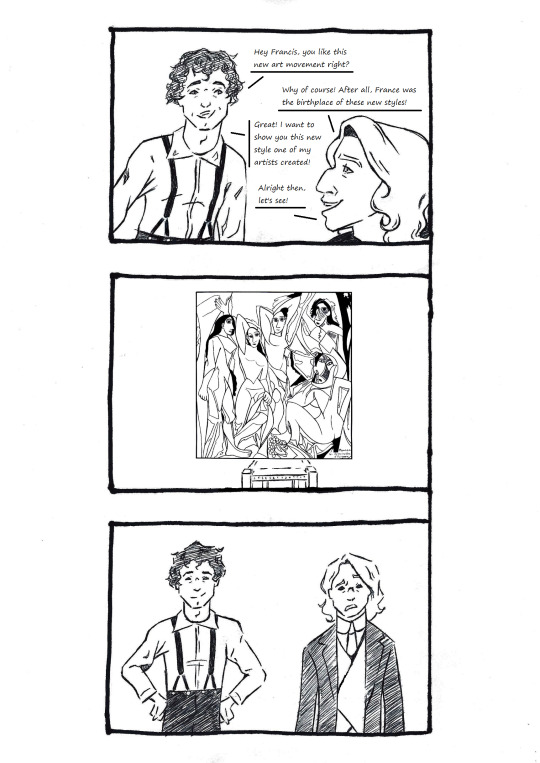
Day 5 (25.02): 1800 – 1945 // Music || @historical-hetalia-week || I like to think that Francis absolutely embraced the Impressionist movement when it first began because it was something so new and fresh (and you have to love how dramatic people were being about it!) but when he first saw Cubism he just… it was definitely an acquired taste. Credit to www.colorIage.info for having a coloring page version of the painting!
Now let me tell you some art facts!
1. This painting is called “Les Demoiselles d’Avignon” (1907) by Picasso and is generally considered the first Cubist painting! It’s also bigger than what the drawing makes it look like at 8' x 7' 8! I didn’t want to place the painting in a salon because Picasso originally was only showing it to close friends and collectors in the beginning from what I've read. I also didn’t want it to look blank but I guess I could’ve just drawn a floor marking. Let’s just say that a big table is holding it up!
Les Demoiselles d'Avignon by Picasso (article) | Khan Academy || Picasso, Les Demoiselles d'Avignon (video) | Khan Academy || Pablo Picasso. Les Demoiselles d'Avignon | MoMA || MoMA Learning | Pablo Picasso. Les Demoiselles d'Avignon. || Teens talk about Picasso's Les Demoiselles d'Avignon, MoMA || Picasso, Les Demoiselles d'Avignon
2. Francis is absolutely correct in saying that France was the birthplace of modern art as the beginning of modern art is credited to Édouard Manet’s “Le Déjeuner sur l'herbe” which is “The Luncheon on the Grass” in English. The painting threw away all of the rules of how to paint a masterpiece from the time and was scandalous to many people! After being shown in the Salon des Refusés of 1863 other artists began to create modern paintings. Manet is not to be confused with Monet though! Those are two different artists!
Le Déjeuner sur l'herbe - Edouard Manet | Musée d'Orsay || Déjeuner sur l’Herbe (Luncheon on the Grass) – Modernism Lab || Modernism: The Roots of Modernism || Édouard Manet (1832–1883) | Essay | The Metropolitan Museum of Art | Heilbrunn Timeline of Art History || Édouard Manet and the Beginnings of Modernism || Manet, Le déjeuner sur l'herbe (video) - Khan Academy
3. I know that Cubism and many of Picasso's most famous works look childish but please do not assume that he wasn’t a great artist. Picasso completed this painting at 25 but already had a newspaper article about his art at 16 and had his first solo exhibit at 19 with 150 works! Your teachers are right in telling you that not everyone can be Picasso! There are other reasons to dislike him but he really was a talented painter. Also we have videos of him!
Pablo Picasso | Biography, Cubism, Famous Paintings, Guernica, & Facts | Britannica || Pablo Picasso (1881–1973) | Essay | The Metropolitan Museum of Art | Heilbrunn Timeline of Art History || Watch Picasso Make a Masterpiece
#historicalhetaliaweek#hhw day 5#prompt: 1800 - 1945#hws france#hws spain#hetalia france#hetalia spain#aph france#aph spain#frain#hetalia#im sorry this is so long but i had so much to say.i dont even like picasso#would you believe me if i said i held myself back cause i did#i couldnt even crop the sides off to this for some reason
33 notes
·
View notes
Text
Marital Negotiations
Summary: For the fifth day of @historical-hetalia-week . After his marriage, Austria talks candidly with his wife about their roles in the empire. This is not AusHun in a romantic sense; their marriage is political.
Characters: Austria and Hungary
Time Period and Prompt: 1867, Music
Word Count: 1.6K
Austria sat with a sigh and flipped open the cover over the keys. He ran his hand softly over the well-worn black and white keys. They felt friendly and familiar, and like exactly what he needed when the world felt so uncertain. It felt like he was in the midst of an upheaval and he needed to touch something that felt familiar.
There was so much on his mind, and he just needed a moment with something he knew well. He placed his hands in the familiar position and allowed himself to think of what suited his emotions. He didn’t need sheet music. He would play directly from the heart, and it would allow him to hear what he was feeling.
It was no mystery what he was feeling. It was bubbling up in his chest so badly that he could not contain it. He had left a court function for the comfort of his own piano because he could no longer repress the emotions.
They needed to escape, and if not in music, then it would come out in words and actions. He felt certain that he could make his escape from the formalities of court life because the emperor had already done so. Franz Joseph had said that he had work to attend to and had left for his study. Austria saw no reason why he should stay for the entertainment of the nobility. He found it increasingly difficult to care about anyone’s opinion except the emperor’s.
He pressed down the first key and the music flowed instinctually from there. It was Mozart, something familiar from another time. A time when he had been certain of his place in the world, and when his power had seemed less uncertain.
Yet, it was not Mozart at his more successful and vibrant. This was the requiem that he had written at the end of his life, full of a kind of ethereal melancholy. It seemed fitting to Austria. The sounds of a once great composer facing uncertainty and the possibility of ruin were soothing to him.
He couldn’t help but see the mirror of his own situation in the wake of his loss to Prussia. As an empire he was at his most precarious, and it seemed that even the measures he had taken to shore up the foundations would put returning to his old glory out of reach.
As his hands moved, he thought even more acutely about the way forward and the pragmatic marriage that he had already accepted. It would not make him happy, but that was hardly the goal. It was for the good of the empire, and it was all that he could have done. He continued to play, pouring all of the anxieties in his heart into the music. It was cathartic to let loose his emotions, which he had masked for weeks underneath layers of courtly formality.
He only broke out of his thoughts when he heard a voice say, “So, this is where you went.”
The voice was unwelcome, as was the person it belonged to. Austria’s hands stopped on the keys and the music died in the air. Only then did he look up at Hungary, who was standing in the doorway. She had a glass of wine in her hand, so she had clearly come directly from the frivolities to find him.
He did not respond, but he did meet her gaze so that it was clear that he had heard her. He was glad that she was wearing gloves over her ring, so that he did not have to be reminded of who he was married to. The dress she was wearing was a surprise since it had been her tradition in recent years to wear a Hussar’s uniform to spite him. He could not guess at why she had made the change.
Hungary spoke as she settled herself into one of the spare seats avaliable for when he gave performances, “Why did you leave? Shall I guess?”
He made an irritated noise in his throat at the question. She was his wife, and he supposed that he owed her an answer, but it was far too complicated. He simply said, “Guess if you must.”
She took a drink of the wine before saying, “I do not think that you want to me seen sitting next to me. It is repulsive to you that you may have to appear to be my husband where others will see it.”
He let out a long sigh. It was not so simple, and he was struggling to put it into words. He did not resent her entirely; he resented what the marriage meant about his own weakness. But he would also be lying if he said that he did not resent the match since she had been a particular thorn in his side since the revolutions.
He said evasively, “You already know that this was for the good of the empire.” She looked utterly unconvinced as she retorted, “You would have rather had Bohemia until Sisi insisted otherwise.”
He hated how correct she was, and that he had no counter. He had agreed because Franz Joseph loved his wife and the Empress loved Hungary. It had all been a process of compromise.
He sighed again and immediately saw her roll her eyes at him. He imagined it was because he was acting every inch the melodramatic aristocrat. But he felt entitled to his melancholy, and the frustrations that came with it.
He turned on the piano bench so that he was facing her. She met his glare unflinchingly. He said, “Do you know what moment in my life made me feel the weakest I have ever felt? It was in 1487 when you took Vienna from me. You humiliated me then and it convinced me that I could never appear that weak again.”
He remembered it clearly and had been revisiting that memory more often since the wedding. Then she had been more than petty and incalcitrant; she had been younger and ambitious and so quick to smugly proclaim her conquests. It was hard to think that he was married to the person who had once ripped his own capital from him.
She shook her head with a look of incredulity. She replied, with a look bordering on disgust, “So you decided then that you had to subjugate me to show your own strength? Should I remind you that twenty years ago you retook Budapest and built a fortress on the highest point to remind me that I would never have my autonomy?”
There was something supremely comforting to him in the argument. It was the familiar way that they had interacted for so long, and it made so much more sense to him than trying to negotiate a marriage.
Before he could volley back, she stopped herself and said, “Is this what we are going to do, Roderich? Are we going to keep measuring our grievances against each other until one of us gets to be the winner?”
He couldn’t help but feel disappointed that she was refusing to take the bait that he was offering. He said, dismissively, “Well, I think that we can both see who won. Whenever you get tired of pretending here, you will go back to Budapest and have all the autonomy that you desire.”
He was not certain why she was even pretending that they should act like spouses when she had the ability to do exactly what she had always wanted. Hungary leaned forward and said, “I know that you think this is to keep me from rebelling, but have you considered that you aren’t alone now?”
Austria was taken aback. He asked, being genuine in his curiosity for the first time in the conversation, “What do you mean?”
She heard the shift in his tone, and he saw the way that the slightest smile appeared on her face. It made him feel the strangest kind of warmth at the thought that she did not want to undermine him. He had spent so many years treating her as an unreliable subordinate that it felt strange to break from those thoughts.
She answered him. “You have been mistaken about me for a very long time. You have always acted like my goal was to tear you down. All I have ever wanted was to be treated like an equal. Now that I have just as much stake in the empire, I will do everything in my power to support and protect it. You know I am the strongest part of the empire, and together we will be even stronger.”
Austria had not thought about it in those terms and realized that he may have been underestimating their alliance. He knew that he was showing the dawning realization on his face, and that she must see it. She continued, “You do not have to sit on the throne alone anymore.”
Austria smiled and said, “Well, perhaps we can make peace with each other, and the empire will be better for it.”
He felt a strange weight lift off of his shoulders as he said it. The burden of worrying about Hungary’s intentions had been weighing him down far more than he had realized. If he could count on her to work towards the same goal, then the empire may not be in the dire situation that he had anticipated.
She smiled and said, “I wore this dress to show you that I can compromise. I know you prefer the dress to a uniform, so I wore one. I am willing to work with you, no matter our past disagreements.”
Austria hadn’t even considered that the dress was supposed to be sending a message to him, one that he had clearly missed. He replied, “Erszi, I may have underestimated you.” She said immediately, “Haven’t you always?”
He chuckled and realized how long it had been since he had let himself laugh at a joke. It was more pleasant than any interaction they had in the last ten years.
She set aside the empty wine glass before standing and extending a hand to him. She said as she did so, “All that I am asking is that you make an effort.”
He took her hand and stood up. He simply responded, “Let’s go back.”
#historicalhetaliaweek#hhw day 5#period 1800-1945#prompt: music#hws austria#hws hungary#not tagging the ship because it's not that positive towards the ship
25 notes
·
View notes
Text

The Pony Express was a mail service between St. Joseph, MO and Sacramento, CA that was created to try and connect the quickly growing state of California with the rest of the United States. It lasted a *whopping* one and a half years (April 3, 1860 - October 26, 1861), then went bankrupt, but was actually really cool and effective for the short duration of it. There were 190 stations, some of which simply allowed the riders to swap out their horses (swing stations), and others (home stations) allowed them to stay the night. It took about ten days for mail to travel between the coasts, which at the time was the quickest and most direct means of communication.
It sounded right up Alfred's alley. Riding horseback, traversing barely explored and dangerous territories? I'm not entirely sure there's something MORE Alfred than that.
It was also immediately before the Civil War, and tensions were palpable. The boy doesn't do well under stress, so I can totally imagine him just up and leaving (to the horror of his officials and president) to go on an impromptu, reckless, cross-country adventure without telling a soul about it. He'd get the added perk of feeling like a fugitive at that point, too, as I'm sure they'd be out looking for him.
Anyways, this has been in my head for some time now, so I'm glad I got to put it down. This is for day 5 of Historical Hetalia Week! Thanks @historical-hetalia-week for putting on a fun event! Glad I got to submit this in time!
#aph america#hws america#historical hetalia#historicalhetaliaweek#western america#alfred f jones#hhw day 5#I've literally never drawn a horse before#but I don't hate it#my art
236 notes
·
View notes
Photo
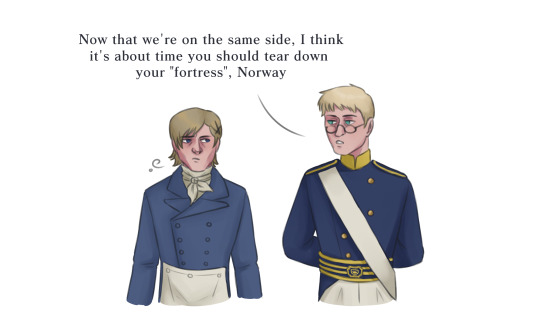
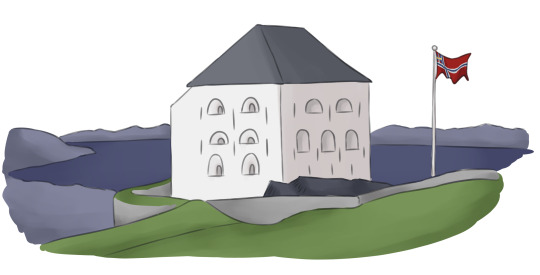
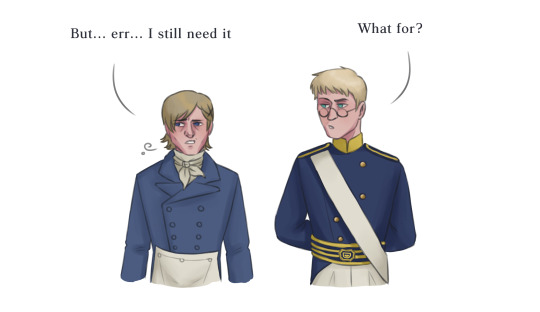

1800-1945 - for the fifth day of @historical-hetalia-week !
After 1814 Norway entered a union with Sweden, who they had throughout 400 years been at war with on and off. To prevent any uprisings or militarized restistance from their new partner, Sweden insisted Norway’d tear down some of their “fortresses”. In 1816, the city of Trondheim was ordered to destroy Kristiansten festning, but they got away with it staying up by argumenting that they needed a place from where to salut the King whenever he would visit the area. Which is kind of amazing actually
#historicalhetaliaweek#hetalia#hhw day 5#prompt: 1800-1945#aph norway#aph sweden#hws norway#hws sweden#sunor#historical hetalia#can you tell I love drawing uniforms and historical clothing??
232 notes
·
View notes
Text
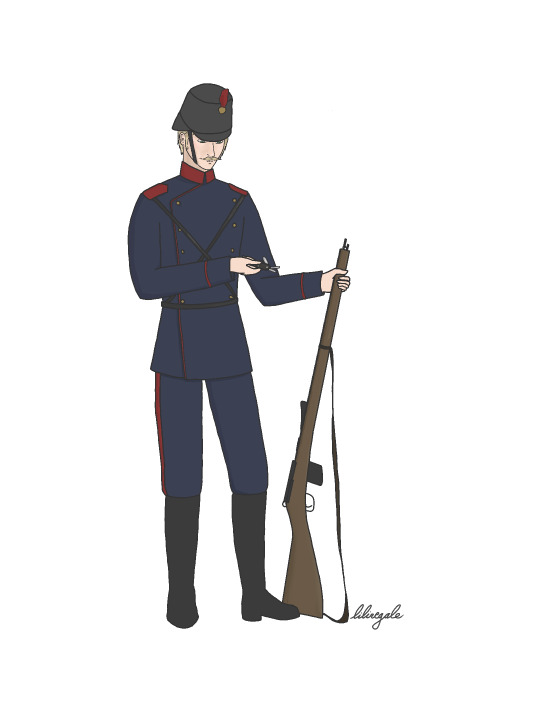
The First Swiss Army Knife, 1890
And I really wanted to give him the 19th century mustache and sideburns, but here is his mustache-and-sideburn-less version
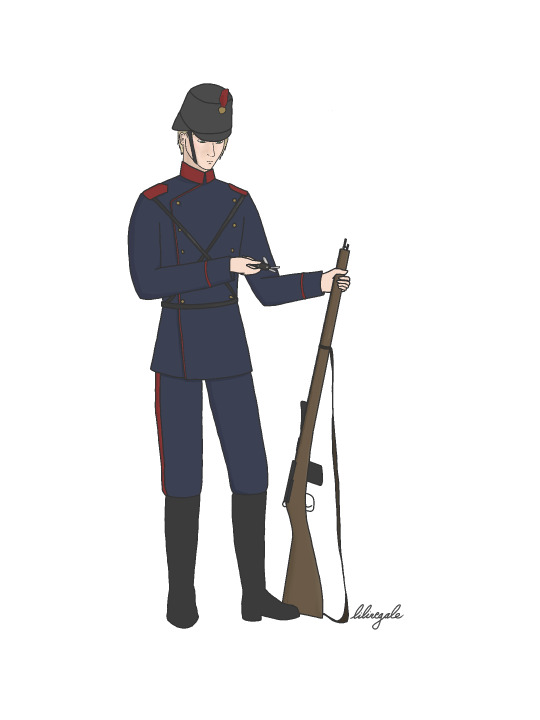
For @historical-hetalia-week's prompt 1800-1945
23 notes
·
View notes
Photo

Quand il me prend dans ses bras Il me parle tout bas Je vois la vie en rose
Inspired by the rise of jazz’s popularity in France during the 1930s, especially thanks to the Parisian Hot Club. During WWII, jazz was more fully assimilated into French culture, as it was viewed as a form of resistance against the Nazi occupation.
While the song “La Vie En Rose” wasn’t released until 1950, it was written in 1945; France’s outfit is standard white tie attire from the 1920s (reference).
Day 5 of @historical-hetalia-week!
#historicalhetaliaweek#hhw day 5#prompt: 1800-1945#prompt: music#hws france#aph france#historical hetalia#yes i tried to find a song from the right era#that's how my speakeasy parody poster spiraled#into a rabbit hole about the history of French jazz#anyways handsome man in white tie attire#arcade art
19 notes
·
View notes
Text

For @historical-hetalia-week day 5: 1800-1945 A.D.
#historicalhetaliaweek#hhw day 5#1800-1945#aph prussia#aph russia#hetalia#nyo!prussia#nyotalia#nyo!russia#fem prussia#fem russia#axis powers hetalia#hetalia world stars#hetalia world series#nyo prussia#nyo russia#rusprus#ruspru#myart#churning out pots
43 notes
·
View notes
Text
Day 5 – Novelty / (1800 – 1945)
Here is my somewhat late debut to Day 5 of the historicalhetaliaweek. For clarifcation on the theme of the character study: It tells of Russia’s POV of the Russo-Japanese War in fast forward - so beware for Period Typical Attitudes

Russia had thought he would obtain an easy victory against Japan.
The stars had stood in his favour, or so he had initially thought. Besides having so much more – manpower, guns, resources – he was European, and at the end of the day that was all that counted. Because everybody knew that European superiority came in the blood, that the progress of those nations was exclusively limited to those minds who regarded themselves as Western.
The East had long since lost its edge, preferring to rot in feudality rather than strive for the stars, idolizing stagnation and decadence over personal growth and honing one’s skills. If anything, the battle was decided before the first shot was fired. Fine silks and elaborate ceremonies wouldn’t save Japan from gun powder and heavy artillery. It would, however, make Ivan’s victory more satisfying.
At night, Russia contemplated if he should tear more than Korea and Manchuria from the yellow grip, if he should maul the Japanese spirit a bit more in lieu of his victory. For all he was, it was his birth right to do so – as a personification and as an empire that had interests in expansion, it was his due to subjugate and control.
That was why being defeated proved to be all the more humiliating.
He went into the conflict confident that he emerge the undisputed victor and he allowed to reap all the benefits due to that position. His laurel would be one decorated with the spoils of war, new lands, and new resources. The confirmation of conquest would be enough to quell the growing discontent festering in his bones and poisoning his mind.
Another humiliating treaty could reassert Asian inferiority, the world once again being provided living proof that eugenics held validity. Russia would make headlines; glory would be his to name and he would revel in it. It would cause the others to fear him all the more, regard him as the next hegemon in the making. Snatching away territories from Japan was just a small step in his grand dream to hold absolute power.
And yet, the island nation set out to prove him wrong from the very first day. Once, Japan had been a splintered country ruled by medieval ideals, the merchants wallowing at the bottom of the food chain while the shoguns dedicated the laws and the rules. Domains ruled by warrior poets that believed that honour was more valuable than life. The emperor had been a mere figure head – all the splendour and riches the nation could dispense invested in catering to a pampered puppet.
Yet that had all changed. Kiku had metaphorically slit himself open and turned himself inside out in the progress of the Meji Restoration. Gone were the samurai that fought battles with katanas and in artistic armour. Gone were the backward ways of the Japanese people as the nation had been catapulted forwards, somehow managing to condense centuries worth of steady progression and exploration into just a few decades. A feat of discipline and mastery on its own.
The war was a test of mettle and opportunity to expand interests for the re-established nation. For the adoption of Western ideals had set off a chain reaction that had reignited his imperial ambitions. It was also part self-preservation, because Kiku didn’t want to be carved up and exploited as Yao had. Alfred coercing him to open his ports and the chaotic consequences of that had been more than enough.
It was with dread that Ivan watched as the conscript army of Imperial Japan butchered his forces. The way his enemy plunged into battle with a vigour that was closer to suicidal idealisation than blood lust had sparked uttermost terror in him. A feat that wasn’t easy, with all that he had lived through.
Still, even as he was back into the corner that was Port Arthur, besieged by somebody he had firmly believed to be his inferior, he had hoped to salvage the situation along with his reputation.
That was why being defeated proved to be all the more humiliating.
As per usual, Nicolas proved himself to be a moron.
Really, Ivan didn’t know why he was surprised anymore. As well intentioned as he could have been, he was utterly inept as a sovereign. If the crown weighed heavy on any head, then it was on the head of a fool. He just wasn’t cut for the role as Czar.
Even as the man sent words of reassurance to the nation, he committed grave mistakes. While Russia himself took immense pride in being the biggest country of the globe, it proved to be tactical disadvantage. The land troops took months to arrive, and the fleet arrived – battered from the long journey around the Cape of Good Hope and the crews follies.
Japan seizing Port Arthur and in extension him was a smarting blow. The recently modernised and fledging empire then proceed to do the unthinkable – an Asian nation had forced a European empire on its knees.
That was why being defeated proved to be all the more humiliating.
It lead to the negotiation table, with Ivan’s blood boiling with anger, the wrath kept behind a schooled expression and subtly expression in bitter words and glares. He had been angry at his ruler, who had played his part in orchestrating this disaster, who had condemn him to defeat. At Japan, who sat across him with a stoic expression but who he knew was inwardly basking in the glory and attention he was receiving. At the world, who gawked at the novelty that was a beaten Russia and a triumphed Japan.
And most importantly, he was angry with himself, with his failure and tattered ego. His mind roiled with vows of vengeance and repercussions. First in line for his ire was the Czar and his weak grasp on power, a shy man that couldn’t have stood in greater contrast to Peter the Great.
As he endured the mocking eyes of the other Westerners, he felt loathing well up in him. For America, who for all his competitive nature and greed had elected to play the white dove and broker for peace. It was probably his way of showing he was the shining city on the hill.
For England, who had thwarted his plans and smiled at Japan in curiosity and cynical fondness. Russia knew that Britain had played puppeteer to these events to a greater extent than was apparent. He was well aware of the coy glances he sent Japan when he thought nobody was looking, how he would gaze into those chestnut eyes intently behind closed doors and wantonly slide his hand down the curve of the others spin and between a set of sinewy thighs.
For all of them, because he just had to be the example, the display, the undisputable evidence that their believes about being the pinnacle of human achievement and catagorism to be false.
#historicalhetaliaweek#hhw day 5#historical hetalia#APH England#APH Russia#APH Japan#hetalia#period typical attitudes#tw war#tw period typical nationalism#hws russia#hws england#hws japan#novelty#1800 - 1945
24 notes
·
View notes
Text
Pitch Perfect - A WWI Hetalia Fic
https://www.fanfiction.net/s/13829031/1/Pitch-Perfect
Summary: England is forced to take a vacation to the USA during World War I. He get’s an unusual greeting from the folks at the docks. A short, drabble written for the 2021 @historical-hetalia-week.
Warnings: Mentions of war, mentions of death (no actual death), light/inadvertent violence (no one gets hurt hurt), mentions of war related injuries (not related to the main characters), general paranoia caused by being in bad conditions for too long. Parts of this got way too dark way too fast but it all turns out for the better. No beta we die charge of the light brigade style.
Read it here: https://www.fanfiction.net/s/13829031/1/Pitch-Perfect
#APH England#APH America#hetalia#historical hetalia#historicalhetaliaweek#hhw day 5#its a comedy I swear#with suspense
22 notes
·
View notes